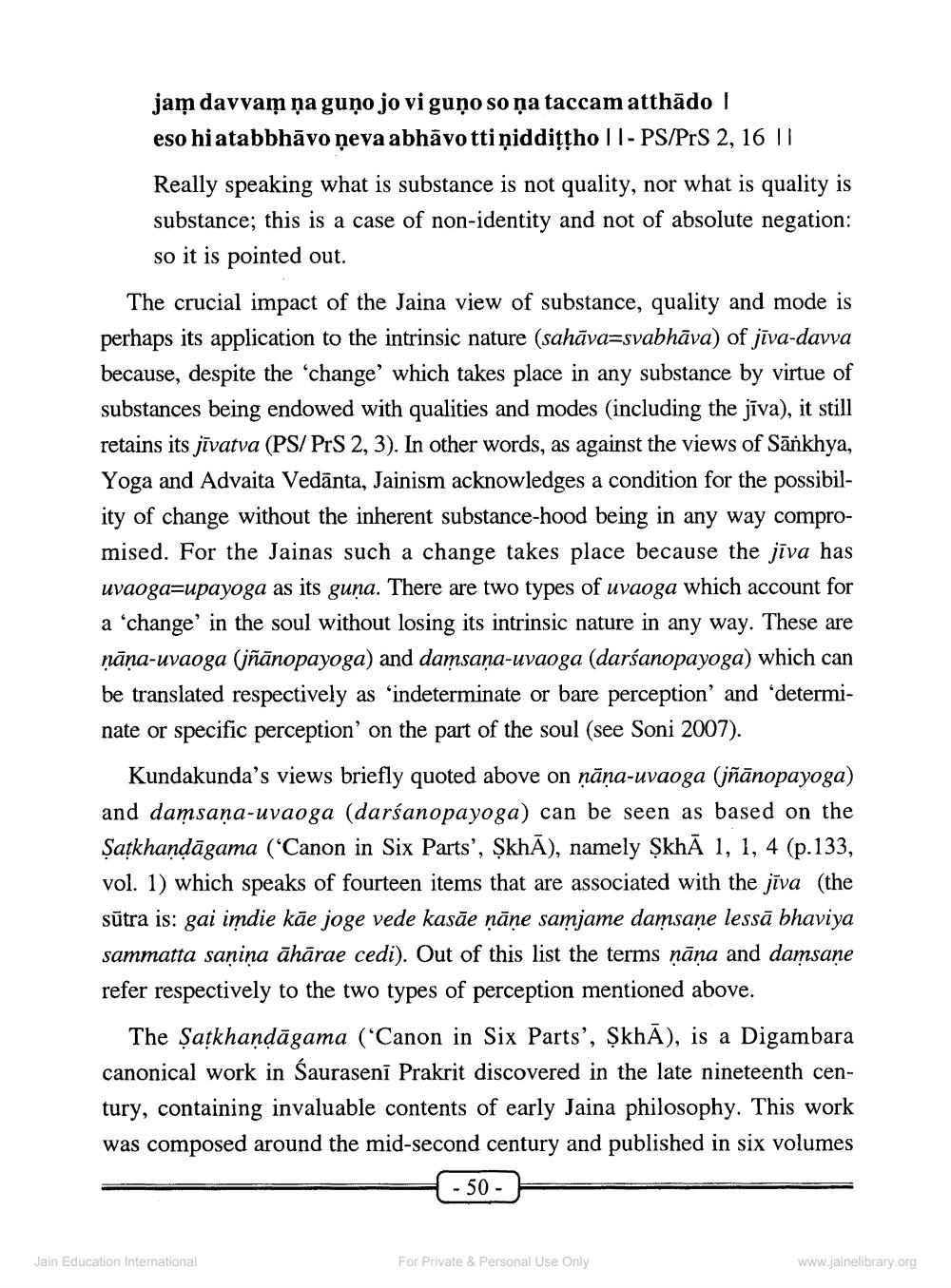________________
jam davvam na guno jo vi guno so na taccam atthādo |
eso hi atabbhāvo ņeva abhāvo tti niddiṭṭho | |- PS/PrS 2, 16 ||
Really speaking what is substance is not quality, nor what is quality is substance; this is a case of non-identity and not of absolute negation: so it is pointed out.
The crucial impact of the Jaina view of substance, quality and mode is perhaps its application to the intrinsic nature (sahāva=svabhāva) of jīva-davva because, despite the 'change' which takes place in any substance by virtue of substances being endowed with qualities and modes (including the jiva), it still retains its jīvatva (PS/ PrS 2, 3). In other words, as against the views of Sankhya, Yoga and Advaita Vedanta, Jainism acknowledges a condition for the possibility of change without the inherent substance-hood being in any way compromised. For the Jainas such a change takes place because the jiva has uvaoga-upayoga as its guna. There are two types of uvaoga which account for a 'change' in the soul without losing its intrinsic nature in any way. These are ṇāṇa-uvaoga (jñānopayoga) and damsana-uvaoga (darśanopayoga) which can be translated respectively as 'indeterminate or bare perception' and 'determinate or specific perception' on the part of the soul (see Soni 2007).
Kundakunda's views briefly quoted above on ṇāṇa-uvaoga (jñānopayoga) and damsaṇa-uvaoga (darśanopayoga) can be seen as based on the Satkhaṇḍāgama ('Canon in Six Parts', ṢkhĀ), namely Ṣkhà 1, 1, 4 (p.133, vol. 1) which speaks of fourteen items that are associated with the jiva (the sūtra is: gai imdie käe joge vede kasāe ṇāņe samjame damsane lessā bhaviya sammatta saniņa āhārae cedi). Out of this list the terms ṇāna and damsane refer respectively to the two types of perception mentioned above.
The Satkhaṇḍāgama ('Canon in Six Parts', ṢkhĀ), is a Digambara canonical work in Sauraseni Prakrit discovered in the late nineteenth century, containing invaluable contents of early Jaina philosophy. This work was composed around the mid-second century and published in six volumes
Jain Education International
- 50
For Private & Personal Use Only
www.jainelibrary.org




